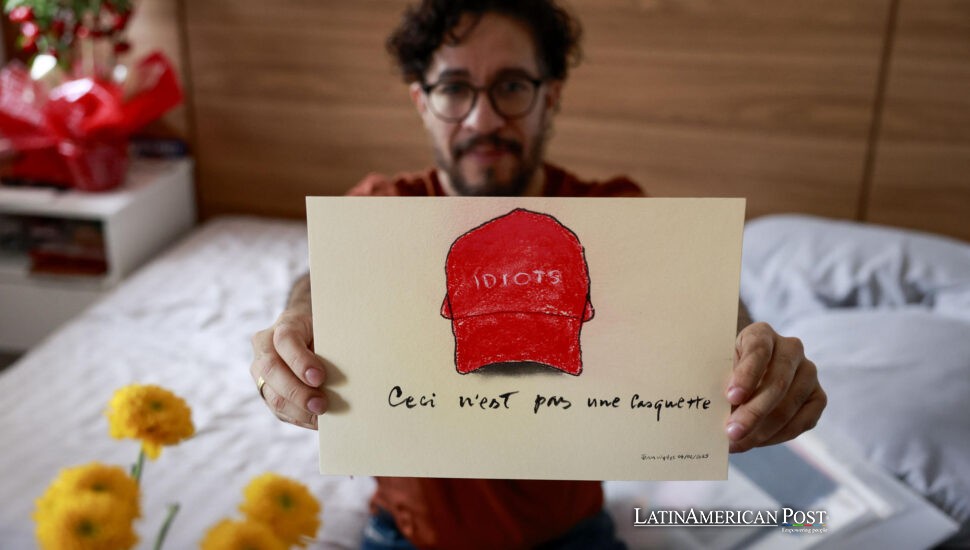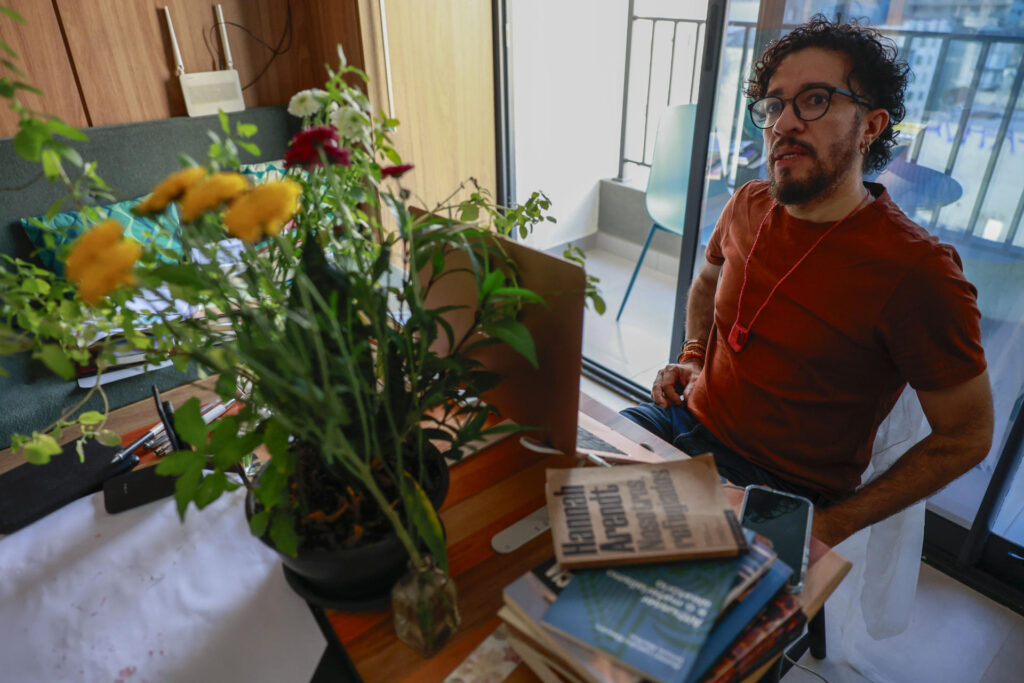Jean Wyllys Returns to Brazil to Face the Machine That Tried to Silence Him

After years of death threats, exile, and a relentless smear campaign, Jean Wyllys—the reality-show winner turned openly gay lawmaker—is back in Brazil. Older, grayer, but unbowed, he’s confronting the same political hate machine that once drove him out.
From Reality-Show Star to Reluctant Politician
Two decades ago, Jean Wyllys was best known as the soft-spoken literature professor who won Big Brother Brasil. The fame could have set him up for a life of endorsements and comfort. Instead, in 2011, the Bahia-born academic made the improbable leap into politics, joining the left-wing Socialism and Liberty Party (PSOL) and becoming one of Brazil’s first openly gay members of Congress.
“I thought the popularity of the program would protect me,” Wyllys told EFE. “But it only painted a bigger target.”
His visibility made him a lightning rod in a Congress steeped in machismo. While he pushed for LGBTQ rights, a parallel online universe began churning out lies—doctored images, crude memes, and threats that followed him into restaurants and onto the street. What had started as political opposition metastasized into a full-scale disinformation campaign designed to destroy both his reputation and his sense of safety.
The “Gay Kit” Lie That Wouldn’t Die
One of the earliest—and most damaging—falsehoods came in 2011, when Jair Bolsonaro, then still an obscure congressman, took the chamber floor to claim Wyllys had created a “gay kit” for schools. Bolsonaro painted lurid images of sex toys and phallic baby bottles meant to “convert” children to homosexuality.
The reality was far less scandalous: it was a set of educational materials, funded under President Dilma Rousseff, aimed at helping teachers prevent homophobic bullying. But Bolsonaro’s framing stuck.
“He created moral panic in a conservative society,” Wyllys recalled. “The press didn’t filter it, and the lie spread like wildfire.”
The fabrications multiplied. One week, he was accused of trying to abolish Father’s Day; the next, of plotting to legalize pedophilia. The drumbeat of slander pushed him to avoid public spaces, skip concerts, and eventually hire armed bodyguards.
By 2016, as the neoliberal Movimento Brasil Livre (MBL) mobilized for Rousseff’s impeachment, the attacks reached industrial scale. Facebook groups and YouTube channels churned out new conspiracies daily. Offline, activists began filming themselves harassing him at cafés, posting the clips for online mockery. That year, five men chased his car through Rio, pelting it with stones while livestreaming the assault. “We survived by luck,” he said.
A Breaking Point—and Four Years in Exile
In Congress, tensions with Bolsonaro escalated into physical confrontations. “In the hallways, he would shove me, call me filth,” Wyllys said. The flashpoint came on April 17, 2016, during the impeachment vote. Bolsonaro dedicated his “yes” to a notorious dictatorship-era torturer, prompting Wyllys, in a moment of fury, to spit in his direction.
The incident went viral, further inflaming the online mobs. Two years later, the assassination of his PSOL colleague Marielle Franco—allegedly ordered by a militia with political connections—brought the threat into sharper focus.
Wyllys filed 17 police reports over threats, including one message mapping blind spots in congressional security cameras. Another included photos of his mother’s home in Bahia and threats to “decapitate” his sisters.
In January 2019, just three weeks into Bolsonaro’s presidency, Wyllys walked away from his seat and boarded a flight out of Brazil. He spent the next four years between New York, Berlin, and Barcelona—studying, lecturing, and wrestling with depression.
The smear machine never stopped. Bolsonaro’s sons even tried to link him to the 2018 knife attack against their father, a false claim that was later retracted by court order.
Home Again, but Still on Guard
In 2023, Wyllys returned to Brasília. The capital felt thinner, quieter, and more guarded. Still, his apartment quickly filled with the tools of his new mission: a doctoral thesis on disinformation, shelves sagging under Hannah Arendt, analyses of Donald Trump, and worn copies of 1984.
He also released Falsolatria, a searing essay on the culture of falsehoods. “I needed to face the trauma,” he told EFE, speaking beneath a wall of banned books once burned by Brazil’s dictatorship.
He hasn’t received direct threats in over two years, but he’s still part of a federal protection program, obliged to report every trip outside the city. Online, he continues to spar with detractors, sometimes sharply enough to draw legal retaliation, including a defamation conviction against MBL.
“I hold no office and want none,” he said. “But I stay visible to prove we cannot retreat. If we leave the stage, the scoundrels win.”

Fighting for Space in a Fragile Democracy
Brazil remains the deadliest country in the world for LGBTQ people, with 273 murders in 2024, according to Grupo Gay da Bahia. Yet Wyllys believes the political weather has shifted. Bolsonaro is out of power. Independent fact-checkers now flag viral hoaxes in minutes.
Still, the architecture of disinformation—the same machinery that once built the “gay kit” myth—remains embedded in encrypted messaging apps and syndicated talk radio.
“Our democracy may be fragile,” he said, “but it is mine. Running away from it would betray those who believed I could help build something better.”
Also Read: Mexico’s Vape Ban Is the Law—But the Smoke Hasn’t Cleared
Outside, a late-afternoon thunderstorm cracked over Brasília. Inside, Jean Wyllys bent over his desk, a pen in one hand, a half-finished sentence in front of him. This time, the story he was writing was his own.
Quotes and interviews courtesy of EFE.




